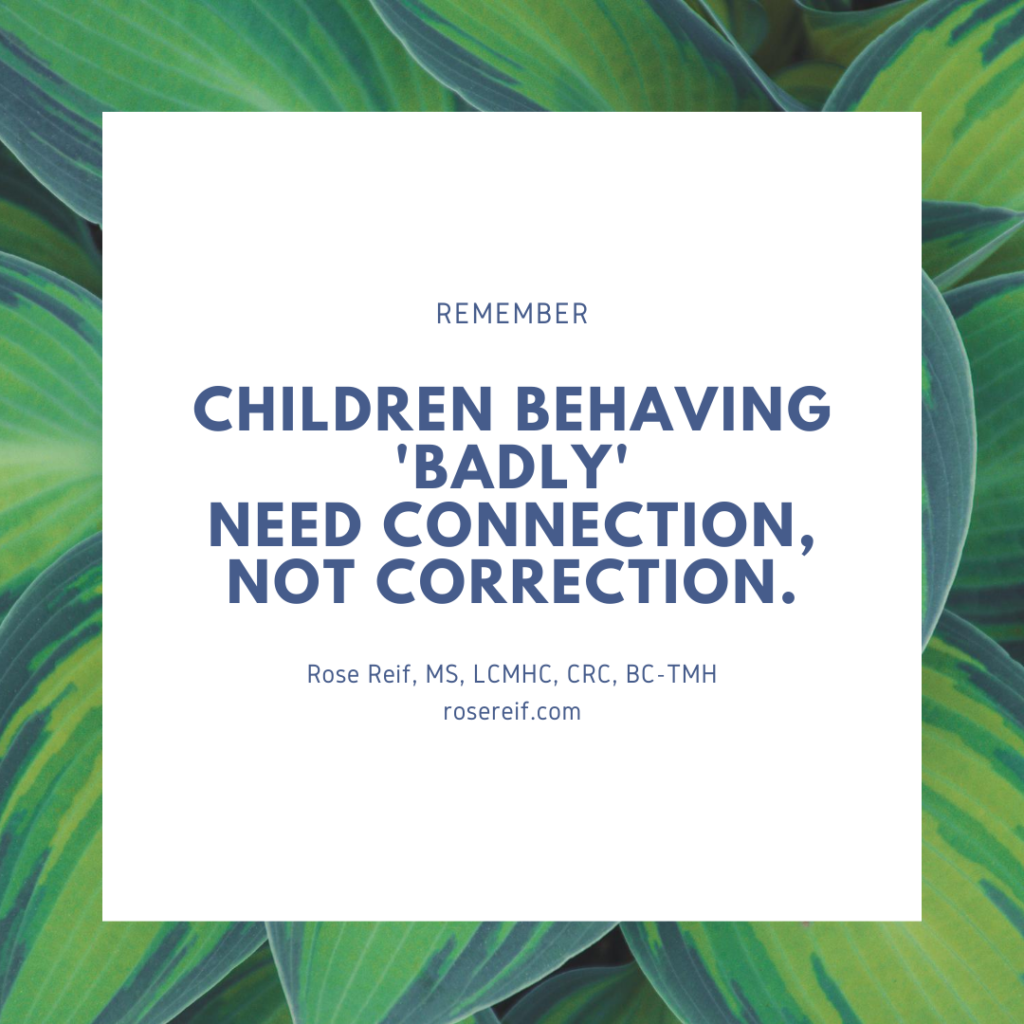How do you determine your self-worth as a special needs parent?
Self-worth is a concept central to our humanity. Our sense of self-worth, how we think and feel about ourselves, influences how we treat ourselves.
When we feel good about who we are, we are more likely to spend time doing things and thinking in ways that maintain that positive view.
But when we feel unworthy or believe we are failing at something, we convince ourselves that we don’t deserve anything good. Then we behave in ways that support this negative self-view.
We are all guilty of using certain arbitrary and unhelpful indicators to assess our self-worth. How much money we have in the bank. How many followers we have on social media. What the scale says.
Of course, we can all recognize that these external factors have nothing to do with who we are as a person, really.
But for parents raising kids with disabilities, it can be harder to shake the belief that certain external circumstances are not, in fact, reflective of our true selves. Or of how we’re doing as a parent.
I’m a mental health counselor for special needs parents. How to define your self-worth as a special needs parent is topic that my clients and I often discuss.
Here are the top 5 things that should not define your self-worth as a special needs parent.
1. Your child’s behavior doesn’t define self-worth as a special needs parent
Like most of us, you probably grew up content in the belief that good parents raise good kids. Praise them when they’re good and reprimand them when they’re bad. Eighteen years later your reward will be a well-adjusted young adult.
Then you have a child who has unexpected meltdowns and aggression. Maybe they even talk about wishing they were dead, or wanting to hurt others. You’re embarrassed and scared to admit that you have a hard time knowing if they’re serious.
It can be easy to use every strategy, from punishment to reward charts, to make your child quit behaving badly.
Many parents believe that simply correcting ‘bad’ behavior makes them a good parent.
But the truth is that traditional parenting assumes that our children’s behavior is all chosen behavior. This ignores what we now understand to be true of how kids’ brains develop. All children, but especially children who have disabilities or who have known trauma, are often not choosing to behave ‘badly’. Rather, what we interpret as bad behavior really reflects protective and adaptive behavior. When children are stressed, their sympathetic nervous system takes over and prepares them for fight, flight, or freeze. What we perceive as a child choosing to behave badly is typically a child who is dysregulated. Their sympathetic nervous system has detected a threat. This child is not in control of their behavior.
Special needs parents who understand this recognize that their children behaving badly doesn’t mean that their child is bad. And it certainly doesn’t mean that they, themselves, are a bad parent.
They recognize that their children’s behavior is their only means of communicating that they are dysregulated.
Children who are aggressive and destructive are not crying out for punishment, or to be ‘ignored until the behavior goes away’. They are showing you in the only way they can in that moment that they need you to step in. They need your calm and compassion to help them become physically regulated. They are asking for connection, not correction.

Wise parents know that their child’s outward behavior is a direct reflection of how they’re doing as a parent. Instead, they aim to understand their child’s unmet needs. They provide co-regulation when their child’s behavior asks for it.
These parents know that, over time, this will help their child develop more healthy coping strategies than they would if they were simply forced to ‘behave’. And this is worth more than having a child who ‘behaves’ because they fear punishment.
2. The support you receive has nothing to do with your self-worth as a special needs parent
Special needs parents often feel guilty asking for or accepting support from others. When parents raising kids with disabilities to explore this guilt, they often talk about other special needs parents:
“Just look at how hard that other mom has it. She has to get by with much less support that I have” is what these parents will often say.
Maybe this is your first thought when someone offers to babysit your child. Or if your parents volunteer to pay for extra therapies. Or when friends set up a meal train after your child’s surgery.
If it is, imagine that you are trying to walk while carrying a very heavy stone. Another person walks by carrying a stone even heavier than yours.
Is your stone now lighter, or easier to carry? Of course not.
Just because others have difficult loads, it does not make it wrong for you to ask for or accept help carrying what is too much for you to lift on your own.
Of course, you may feel compelled to help other parents who face hardship because of their race, economic status, or other factors. Know that the ability to give support to others in need does not mean that you’re prohibited from accepting help from others who want to assist you.
Needing help does not mean that you’re a failure.
It means that you’re human.
We are social beings, biologically driven to communicate and respond to each other. Letting others help you is simply letting them do what they feel compelled to do. If you still feel unsure about that, check out this TED talk. In it Elizabeth Dunn explains why helping those who we strong connection with feels so emotionally rewarding.
If you still feel guilty or wrong asking for or accepting kindness from others, consider what you would say to a friend who was in the same situation. Would you tell them that it was weak or wrong to have support from others? That it meant she was somehow worth less?
Of course you wouldn’t. Acknowledge that your guilt or feeling of failure in this situation is real, but that this doesn’t make it true.
3. Whether you work outside of the home, and how much you earn if you do, is not equal to your self-worth as a special needs parent
Parents raising kids with disabilities often struggle with whether or not to work outside of the home.
Many special needs parents leave the workforce without notice to meet their child’s support needs. Or, they may take a significant pay cut in order to gain the flexibility needed to care for their child. These parents (who are usually, though not always, mothers), often describe feeling deflated and lost. They recognize that much of their self-worth and self-image had been tied to their work. Getting that promotion or raise were signs that they were doing things right.
If you are not working outside of the home, you may feel unsure of how to define yourself without these tangible markers of ‘success’. You were accustomed to checking tasks off a to-do list. To justifying your belonging by your productivity. Now, you find yourself in constant state of doing things that will never be done. For many parents, this leaves them feeling like their daily lives are meaningless.
When I work with moms who feel this way, we often discuss how they can use the tools and strategies of their professional lives to find the value in themselves in their new role.
Feeling isolated and deprived of adult conversation in your role as a stay at home parent?
Connect with one or more other parents who have left the workforce for similar reasons. Establish a routine meeting time, and commit to getting together to share your experiences and to learn from each other. Commit to helping each other recognize the benefits
Feeling frustrated because there are no outward markers of your success as a stay-at-home or underemployed parent raising a disabled child?
Schedule a routine performance evaluation with yourself. Write down the positive things you’ve done that benefit you, your child, your household, your partner, etc. Identify goals for yourself to work towards, and be specific in how you will measure your progress and achievement.
Feeling disappointed in yourself because you are no longer earning what you did, or what you believe you could?
Certainly, you could create a budget that reflects all of the money you save your family by staying home to care for your child. Your choice has likely resulted in savings in childcare, transportation, food, etc.
Consider too, if there are benefits of your choice to stop working that don’t have monetary value.
One mom discussed that, while she was attempting to work, she would often feel guilt for having to leave the office to attend her daughter’s speech appointments. She described arriving at each appointment feeling frazzled and overwhelmed, and nearly always 5 or 10 minutes late. Then she would feel guilt at the appointment for having to answer work calls, and being unable to pay full attention to what her daughter was doing in therapy. After making the choice to leave the workforce, the mom described a sense of control and intention in being able to manage her schedule to no longer arrive at speech appointments late and harried. She felt peace at being fully present and engaged during each appointment.
Wise special needs parents recognize that the value they bring to their child and their family is often incalculable.
4. Your relationships with friends is not an indicator of your self-worth as a special needs parent
Special needs parents often describe their friendships with a sense of loss. They feel misunderstood, and unable to explain to their friends how raising a disabled child has changed them. Talk of medical appointments, IEP’s, and your anxiety about your child’s future living situation are all met with blank stares from the friends they used to feel they could share anything with.
Parents also feel guilt and sadness about being unable to maintain their friendships after having a child with special needs. Because it’s hard to make it to that 8:00 am moms’ brunch when you were up until 4:00 am with a child who couldn’t sleep.
Grieve that your friendships may no longer look they way that you hoped they would. Accept that, though it isn’t right or kind, some friends may be uncomfortable with your child’s disability, and that some friendships may end.
This is hard work. Acknowledging where you’re at, instead of being stuck in where you wish you were in your friendships.
Once you have done this, you are in a position to re-envision or create new friendships that work for you as a special needs parent. Connect with friends who are willing to meet up for a coffee in the waiting room at the OT’s office. Or who don’t mind coming over even if your child is watching Finding Nemo for the 10,000th time or having a meltdown. The kind of friend who will ask, when you call crying, “do you need advice, or do you just need me to listen?”
Because you can’t calculate the value of that friendship; it’s priceless.
Summary
We are barraged constantly by messages telling us that we’re not ‘something‘ enough.
- Skinny
- Kind
- Strong
- Productive
- Authentic
These messages come in form of Instagram stories. Ads that we’re seeing because an algorithm calculated that they would make us feel insecure enough to spend money or time on some product that might make us feel like we’re worthy. You might even be hearing these messages from the people around you. Your partner, your child’s therapist, your own parents.
Knowing what your self-worth as a special needs parent has nothing to do with buying a product to shape or change yourself. It also doesn’t mean simply doing more, Because this will only lead to further feelings of inadequacy, not to mention exhaustion.
It takes seeing yourself clearly, and being comfortable with what you see.













